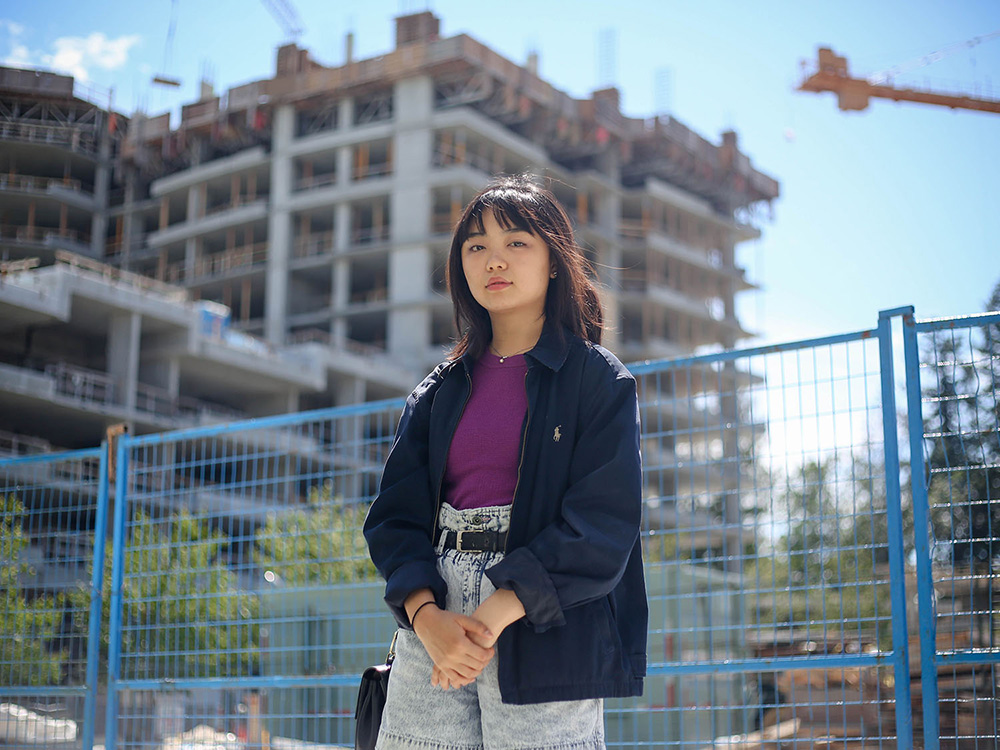I often wonder what catalyzed housing, an economic issue, into racial discourse.
Vancouver’s housing crisis has shadowed my entire life, affecting where I lived, how I lived and where I could live next. As a Chinese-Canadian youth, housing goes far beyond my physical living arrangements. It has profoundly affected my relationship with my heritage and identity as a racialized youth.
My parents arrived in Vancouver with next to nothing and worked for years to afford an apartment, a story similar to those of many Chinese-Canadian immigrants of their time. I was proud of this image of Chinese-Canadians.
But somehow, in my teenage years, the popular media discourse about Chinese foreign investors ruining the city managed to turn that pride on its head. Working-class Chinese immigrants had always been part of Vancouver’s history, but wealthier newcomers from Hong Kong and Taiwan in the 1980s and Mainland China in the new millennium captured a different kind of attention.
I often read comments on news articles about foreign investors that told people like me to go back to my country. But this is my country — I’ve got the baby-faced citizenship card to prove it. My parents tell me to brush it off: "it’s not directed at us, we’re not rich." While it’s true that my family and I haven’t contributed to the skyrocketing prices, it’s like we’ve been lumped together with all Asian-looking people.
The conversation around Chinese homebuyers is particularly dangerous because much of it is what my professor, Jackie Wong, calls, “casual racism.” For example, when a Chinese kid moves into a wealthy neighbourhood, it’s automatically assumed that mom is a mansion-wife and dad works in China, avoiding Canadian income tax. There are no direct racial slurs, but it’s harder to combat implied hostility.
I’m ashamed to admit that at one point I too blamed foreign investors. It was easy to blame them because my family suffered from the housing crisis just as much as most Vancouverites. For 10 years, we’d spend our weekends driving to Coquitlam to look at open houses, and for 10 years I lived in fear of moving away from my friends.
In high school, my Canadian-born-Chinese friends and I would joke about the Chinese international students — even though most of us were friends — in order to dissociate ourselves from them. I felt guilty for reinforcing the stigma, but feared that if I didn’t openly renounce my culture, I’d be targeted as well.
I was living in two worlds, and one world was constantly repressed.
Chinese-Canadians suffer not only because Chinese foreign investors are blamed for the housing crisis, but also because of the tensions manifest in conflicting values and expectations within Chinese culture. I won’t be able to afford a house in the current market. No problem: renting is always an option, right? Well in Chinese culture, owning property is a sign of success, since owning property under the communist regime was considered a luxury.
I’m fortunate that my parents understand my predicament, but my relatives back in China are less aware. It’s difficult enough that Chinese parents take pleasure in comparing their children — my aunts and uncles love to brag about my cousins over the phone — but there is added self-pressure to achieve these unattainable housing goals in order to be considered a successful woman and filial daughter by my Chinese relatives.
I’d like to think that I’ve developed a thicker skin over the years, mainly by eating my parent’s dumplings while convincing myself that living at home has its perks. However, it saddens me that we can take an issue like housing and turn it into a problem of race, and I wonder if it’s affected other Chinese-Canadian youth the way it has affected me.
Sometimes, when I feel myself slipping down the rabbit-hole of sensational headlines, I find it helps to reconstruct the narrative to focus on the underlying structure of the system itself.
I’m Chinese-Canadian. The fact that we have an international capitalist market structure means we are vulnerable to foreign investments. Why should the colour of my skin matter? ![]()
Read more: Rights + Justice, Housing, Municipal Politics

















Tyee Commenting Guidelines
Comments that violate guidelines risk being deleted, and violations may result in a temporary or permanent user ban. Maintain the spirit of good conversation to stay in the discussion.
*Please note The Tyee is not a forum for spreading misinformation about COVID-19, denying its existence or minimizing its risk to public health.
Do:
Do not: